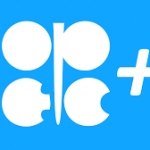
May 6, 2024
Taiwo Adekeye, FMVA
Research Analyst
On Friday, oil prices closed at a lower level, registering their most significant weekly decrease in three months as investors assessed the impact of lackluster U.S. jobs data and speculated on the timing of a potential Federal Reserve interest rate cut. Brent crude futures for July was down by 0.85% closing at $82.96 a barrel while U.S. West Texas Intermediate crude for June shed 1.06%, to hit $78.11 a barrel.
However, For the week, Brent declined more than 7%, while WTI fell 6.8%. During the week ending on May 3rd, the count of oil and gas rigs, serving as an early predictor of future production, decreased by eight to a total of 605, marking the most significant weekly decline since September 2023.
US manufacturing sector declines in April
U.S. manufacturing sector experienced a contraction due to a decrease in orders, after a brief expansion in the previous month. While a gauge of prices paid by factories for inputs approached a two-year high. PMI dipped to 49.2 last month from 50.3 in March, which was the highest and first reading above 50 since September 2022. A PMI reading above 50 signals growth in the manufacturing sector, accounting for 10.4% of the economy. Despite the decline in demand, inflation at the factory level continued to rise, indicating that the downward trend in goods prices might be nearing its end. Decreasing goods prices were the primary factor behind last year’s slowdown in inflation.
Canadian factory PMI dropped as the downturn persisted for one
Canadian manufacturing activity experienced a slowdown in April, further elongating a prolonged period of contraction within the sector. This was characterized by intensified declines in both output and new orders, accompanied by an uptick in inflationary pressures. S&P Global Canada Manufacturing Purchasing Managers’ Index (PMI) declined to 49.4 from 49.8 in March, remaining below the 50 thresholds for the 12th consecutive month. marking the longest continuous period below 50 in data records dating back to October 2010. However, the output index fell to 49.1 from 49.7 in March and the new orders measure was at 48.4, down from 49.4.
Uganda to secure $295 mln loan from Islamic Development Bank.
Uganda has signed an agreement with Saudi Arabia’s Islamic Development Bank (IDB) for a $295 million loan to fund road construction and other projects. The decision highlights Uganda’s endeavor to broaden its external funding sources, given the prolonged and unfruitful discussions with the World Bank to restart lending. According to the ministry, the funds will be allocated to the construction of a bridge spanning the River Nile in northwest Uganda and to the development of roads totaling 105 kilometers.
The cost-of-living crisis in Nigeria worsens as gasoline prices surge
Gasoline shortages persisted in Nigeria’s major cities on Tuesday, causing a sharp increase in prices, ticking the country’s cost-of-living crisis northward. Prices in some retail outlets in Lagos Abuja rose above 850 naira, while those outside major cities, such as Kano, Kwara soared above 1000 and 2000 respectively. The government-owned oil firm, NNPC Ltd, which imports the products sells at an average price of 617 naira. President Bola Tinubu’s administration eliminated subsidies and permitted private companies to handle imports in 2023. However, due to foreign currency shortages and a price cap on petrol, NNPC continues to be the sole importer.














